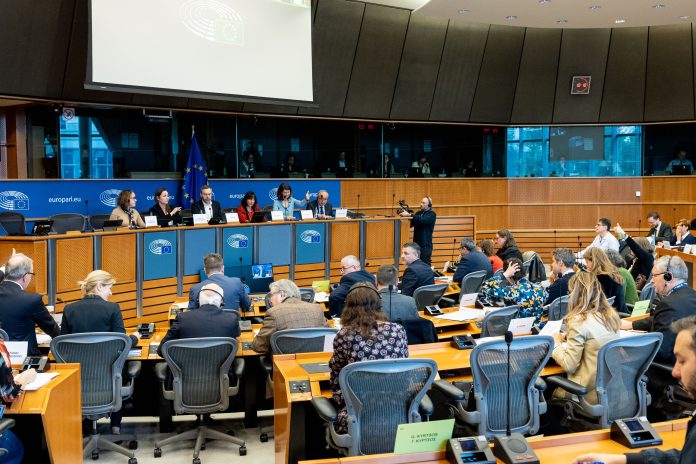EP’s negotiators paused talks to prevent losing the chance to improve the Generalised Scheme of Preferences, following a failure to agree with the Council on the current scheme’s overhaul.
The Chair of the Committee on International Trade, Bernd Lange (S&D, DE), and the rapporteur on the Generalised Scheme of Preferences (GSP), Heidi Hautala (Greens/EFA, FI), issued the following statements on Tuesday after the last unsuccessful round of trilogue negotiations with the Council under the Swedish Presidency. The gap between the position of the European Parliament and that of EU member states on a new rulebook on trade preferences for developing countries could not be bridged. Parliament reiterated its position that preferential trade access under the GSP should not be made conditional on the readmission of third-country nationals.
The Generalised System of Preferences is the EU’s preferential trade arrangement with developing countries and is in place since 1971. The system whereby developing countries need to pay lower import duties when exporting to the EU covers more than 60 countries and two billion people. The current GSP regulation expires at the end of 2023 and the negotiations between the European Parliament and the Council took off in January 2023. The new regulation should have been in effect between 2024 and 2033.
The European Parliament has adopted its position on the new GSP legislation in May 2022.
Bernd Lange (S&D, DE), Chair of the Committee on International Trade, said: “I deplore that, despite seven trilogues, we have not yet been able to reach an agreement. Let me underline that the Swedish presidency has made genuine efforts to conclude the negotiations, but unfortunately the Council does not yet seem to understand that this readmission link is a very serious matter for the European Parliament. It is a line we are unwilling to cross. By failing to acknowledge this, the Council is creating uncertainty for 65 beneficiary countries, who, six months before the end of the current system, are still unsure about the rules they will need to follow in order to maintain their preferential access to the EU market. Thanks to the efforts of the European Parliament, we have already made tangible improvements to the current system. For example, GSP+ countries are now required to present a public Plan of Action demonstrating their commitment to international conventions. It would be painful to lose all of these improvements due to the Council’s insistence to incorporate migration into all policy areas, instead of confining it to the appropriate domain of the Asylum and Migration Pact. Another element hindering us from concluding is the need to strike a good balance between market access and protecting rice producers within the EU.”
Heidi Hautala (Greens/EFA, FI), rapporteur, said: “As a rapporteur I am proud of what the European Parliament has achieved so far and I find it extremely worrying that the negotiations are stalling. We have spared no efforts first to improve the current legislation, and then in the trilogue negotiations to address the remaining political issues. This regulation directly affects nearly two billion people that live in the GSP countries. The revision would bring more transparency to the process and better acknowledge the role of the civil society organisations in both beneficiary countries and the EU. Unfortunately, Council has decided to hijack this trade and development tool and put it to the service of its migration objectives. Now is the time for the Council to do some soul-searching. We have thus decided to pause negotiations until there is a credible change in stance among Member States on this issue. In addition to the readmission, the livelihood of the European rice farmers is a particular concern. This revision would provide better protection for the European rice sector, should the GSP rules lead to unintended market distortions. This improvement will also be lost if an agreement is not reached. We want to see a new, reformed and strengthened GSP in place by the end of the year, but not at any price. We now expect the Commission to present a targeted proposal for a rollover of the current system so as to avoid a cliff edge scenario. We will now work in parallel on both the GSP rollover and the revision.”

